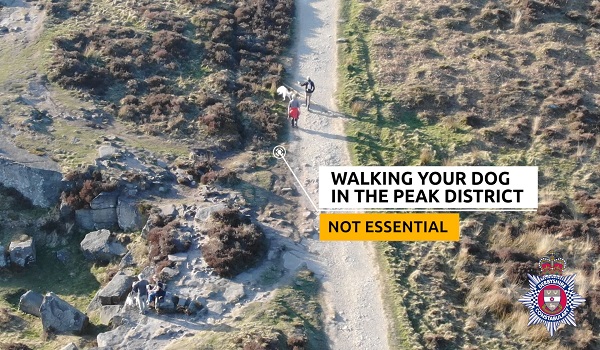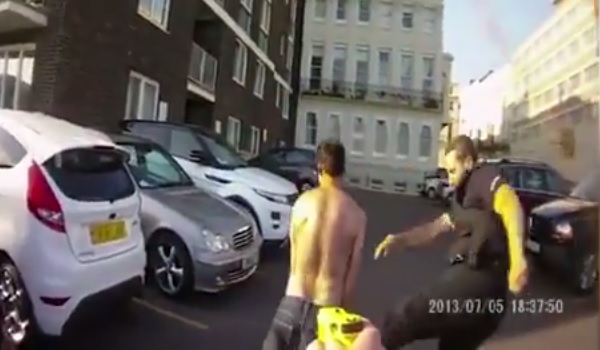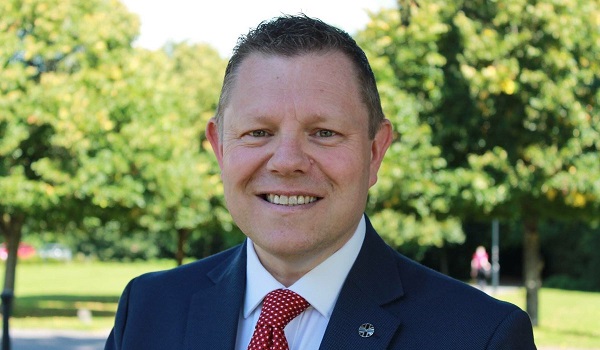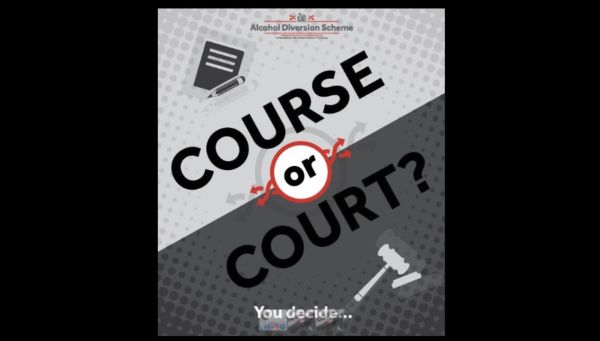Survey highlights public concerns over lockdown enforcement
Around three quarters of the public support the police enforcement the Covid-19 lockdown but a third believe they have gone “too far” in some cases.
And while the public was “broadly” in favour of face-to-face police enforcement, such as roadblocks, support starts to fall with less human tactics, such as the use of facial recognition technology or drones to photograph people.
Research commissioned by crime and justice consultancy Crest Advisory and conducted by YouGov questioned 1,646 adults between Friday and Sunday how they thought police were handling the new coronavirus emergency laws.
Forty two per cent fully supported the approach taken by the police, but a further 32 per cent said they were supportive but felt that in some cases the police had gone too far. Six per cent felt police had been too heavy-handed. However, 14 per cent of those who took part in the survey called for police to take even tougher action.
Just two per cent of the public felt the police should not be involved in enforcing the lockdown at all.
According to the research, 72 per cent were supportive of the police arresting those who failed to comply with an instruction to return home, although 22 per cent did not agree with such actions.
A similar proportion (75 per cent) said they were comfortable with police issuing fines to people who breached lockdown rules; 19 per cent said they were uncomfortable with this.
Joe Caluori, head of policy at Crest Advisory, said: “This survey underlines the challenge police forces have in striking a balance between effective enforcement of the lockdown in order to support public health efforts to tackle Covid-19 and the need to maintain Britain’s model of policing by consent.”
The survey also found that:
- Women were more supportive overall than men of the police approach (46 per cent v 38 per cent) and while 18 to 24 year olds were less likely to be fully supportive they were also less likely to think police had gone too far;
- Geographically, Londoners were the least supportive overall with 66 per cent thinking the police had in some cases gone too far, compared with 77 per cent in the rest of the South, 74 per cent in the Midlands and Wales, 71 per cent in the North and 81 per cent in Scotland;
- 50 per cent were comfortable with using drones to photograph people making unnecessary journeys, although 43 per cent were not;
- 70 per cent approved of police roadblocks asking motorists to justify their journeys, while just 24 per cent were uncomfortable with this;
- 38 per cent were comfortable with naming and shaming people on social media, but 54 per cent were not;
- 50 per cent approved of facial recognition in public places to identify people breaching the lockdown, but 42 per cent were not comfortable with this;
- 43 per cent were comfortable with analysis of social media accounts to identify those in breach of the lockdown, but 48 per cent were not; and
- 51 per cent were comfortable with asking people to report others who breach the rules, while 42 per cent uncomfortable.
Mr Caluori added: “It seems to us that these figures showing public support for police enforcement of the lockdown is not a blank cheque. People are, broadly speaking, comfortable with face-to-face police enforcement up to and including tactics such as roadblocks, which are themselves highly unusual. However, public support starts to fall when people are asked about more remote, less human tactics, such as the use of social media to name and shame those flouting social distancing rules, or new technology such as drones to photograph people.
“It seems likely that any attempt to use facial recognition or look through social media accounts to enforce the lockdown would currently cause significant concern to many. And, of course, the UK is only two weeks into its lockdown and it would be interesting to see how this support may shift if support for government policy changes, frustration grows at the economic and social impact or even if continued good weather encourages people to leave their houses unnecessarily.
“Overall, these numbers will be a much needed boost for overstretched police forces up and down the country, showing that an overwhelming proportion of the public support their approach.”







